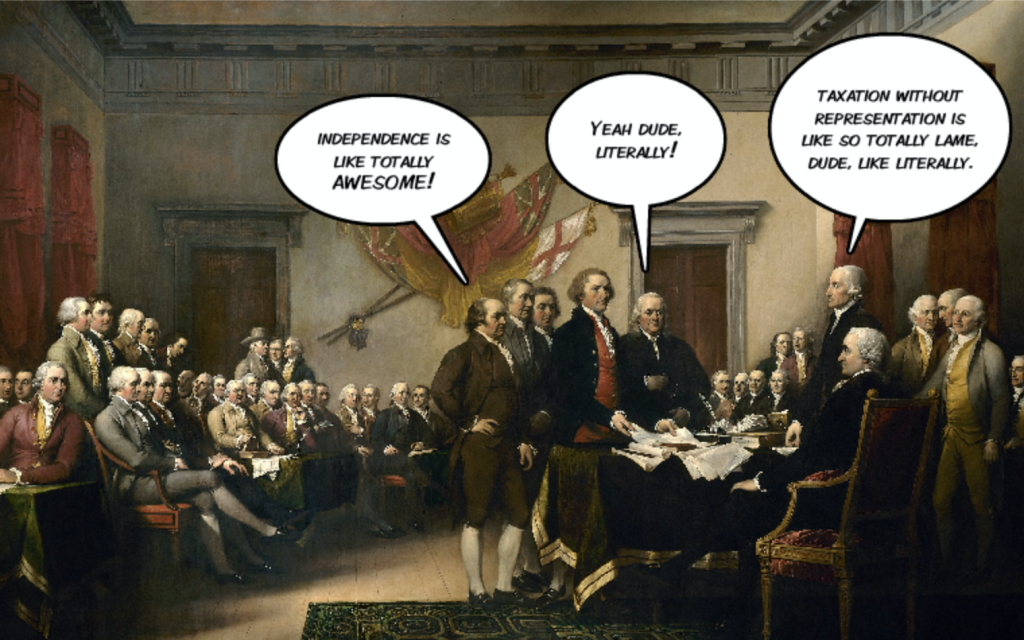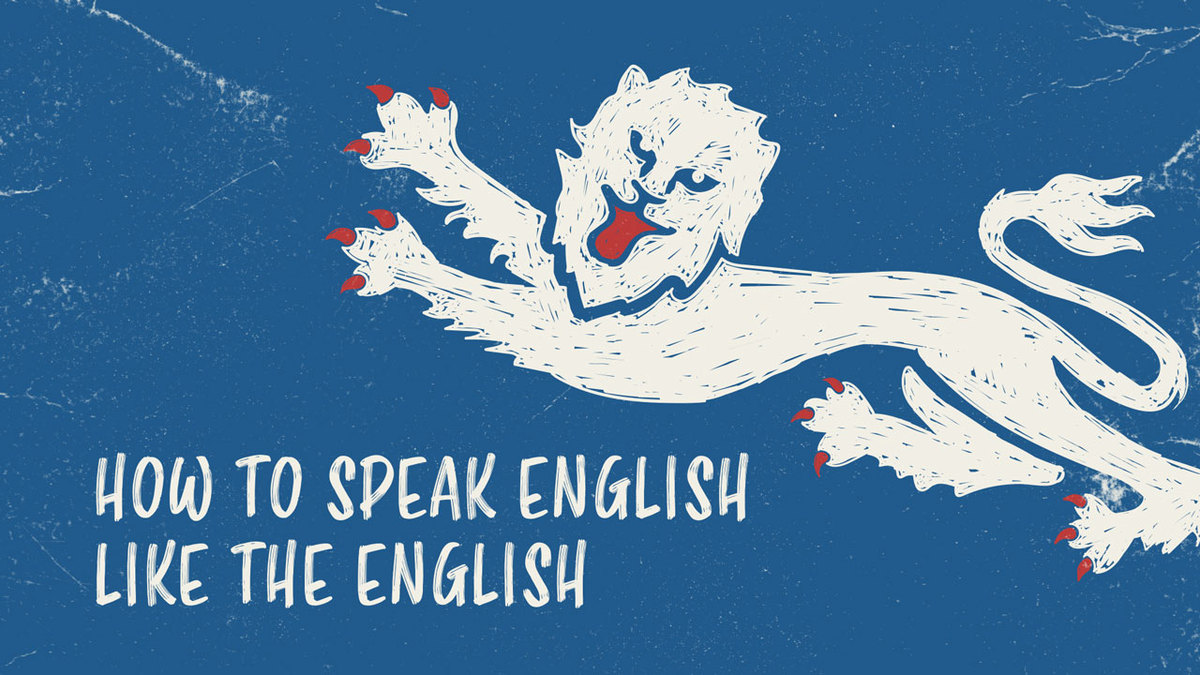How to Speak English Like the English
I’ve heard people talk about “British English” often, and there’s quite a few things I want to say about that. But let’s start by the beginning, shall we?
Two of my favourite articles on Fluent in 3 Months are Benny Lewis’s classics How to Speak English Like the Irish and its sequel Advanced Hiberno English.
So, being from England, I’d like to share some thoughts on how to speak English like the English.
Here’s what we’ll talk about:
Table of contents
- Myth 1: British English and the British Accent
- Myth 2: The United Kingdom and England are the Same Thing
- Myth 3: English Citizens Speak the Original Version of English
- English vs. American English – What’s the Difference?
- What About the Different Accents You’ll Find Inside England?
- We’re Only at the Tip of the Iceberg, and it’s Time to Go Swimming
- Speak English Like the English
Ready? Let’s go!
Myth 1: British English and the British Accent
I need to clear one thing up. There’s no such thing as a “British accent”.
We Brits rarely use that term ourselves, and we tend to roll our eyes when we hear it used in American TV shows.
It’s far more common in the UK to be specific and talk about English, Welsh, Scottish, or Northern Irish accents, the four of which are very distinct from each other. These four accents still only represent broad categories that can be subdivided further.
If you get a tutor on italki (our review is here) who is from the U.K., ask them where which part of the U.K. they’re actually from.
Myth 2: The United Kingdom and England are the Same Thing
To those who don’t understand the difference between the United Kingdom, Great Britain and England – or where other places like Scotland fit into all of this… look it up.
Seriously, it’s not that hard to understand. This video does a neat job of explaining.
Myth 3: English Citizens Speak the Original Version of English
Do English folk really speak the “original” version of English?
It’s actually a dubious claim.
Linguists agree that over the last few hundred years, the accents and dialects of Britain have changed more than the American dialects they gave birth to. In other words, modern American speech is closer to the way British people spoke in 1776 than modern British speech is.

Suffice to say that I’m from England—specifically, I grew up in Oxfordshire.
I can tell you a little bit about the way they talk in the other three Home Nations (Scotland, Wales and Northern Ireland), but this is an article about English English, one of the oldest dialects of the world’s biggest language, and the one that gave it its name.
English vs. American English – What’s the Difference?
1. The Rhotic Accent
How exactly have our accents diverged since the Boston Tea Party?
Many books have been written about the precise phonetic details of different English dialects, but for now I’ll stick with just one: rhoticity.
If you have a “rhotic accent”, that means you pronounce the letter “r” every time it’s written, and most American dialects (along with Irish and Scottish ones) remain fully rhotic.
In England, on the other hand, most of us at some point in the last few hundred years stopped pronouncing the letter “r” when it comes before a consonant (or is at the end of a word). For example in my own name, George, which I pronounce like the word “jaw” with an extra “j” sound on the end, no “r” to be found.
In most parts of England (the main exception being the West Country), people pronounce “father” identically to “farther”, “pawn” identically to “porn”, and “panda” identically to “pander”, while to most Americans and Canadians those word pairs are all distinct.
Non-rhotic accents can be found outside England too, particularly in places that we colonised more recently than North America like Australia and New Zealand. They can be even found in a small number of places in the U.S., most famously in Noo Yawk.
But rhoticity remains one of the clearest, most prominent dividing lines between different varieties of English.
2. Vowel Sounds
Vowel sounds have shifted a fair bit over the years.
In many cases, sounds which used to be pronounced differently are now pronounced the same, or vice versa. But the merger or split only happened on one side of the Atlantic.
I pronounce “cot” very differently from “caught”, but to many Americans they’re homophones. Similarly with “merry”, “marry”, and the name “Mary”, which are three distinct words in British speech, but sound the same in most American accents.
In the other direction, I’d pronounce “flaw” identically to “floor”—there’s that lack of rhoticity again. However, in American English those words are usually separated not just by an “r” but by two noticeably different vowel sounds.
3. Vocabulary
Where things start to get really confusing is with vocabulary, and I’m not just talking about slang.
In Britain, the Royal Mail delivers the post, while in the U.S.A. the Postal Service delivers the mail. Confusing, huh?
Many of our vocabulary differences are totally arbitrary: if I did something on Saturday or Sunday, I’d say that I’d done it at the weekend. An American would talk about having done it on the weekend.
Other differences allow for extra shades of meaning.
For example, Americans only talk about being “in the hospital”. British English retains a distinction between being “in the/a hospital”, which just means you’re literally inside the hospital building, and “in hospital“, which heavily implies that you’re in the hospital as a patient.
It’s like the difference between being “in school” and “in a school”… except Americans use the word “school” slightly differently too.
In the U.S., “school” refers to any educational establishment including college. In the U.K. it’s only used to refer to primary and secondary education: the school that you do before going to “uni”, a British abbreviation for “university” that Americans don’t use.
To add to the confusion, “public school” means something completely different here. For historical reasons, a “public school” in the U.K. is a type of very expensive and exclusive private school, whilst a free, government-funded school (what Americans call a public school) is a “state school.”
Do you follow?
If you’re from America, you may have raised an eyebrow at my frequent use of the word “whilst” in this article. This word sounds very archaic and old-timey to American ears, but it lives on in the U.K. as a synonym of “while”.
The verb “to reckon” is also alive and well in the British Isles, while in the U.S. it’s not really used anymore, except stereotypically by rural moonshine-drinking folks from the South: ”I reckon this here town ain’t big enough for the both of us!”
Then again, I find it weird when Americans say “I wish I would have”. This construction sounds just plain wrong to me. In England we say “I wish I had”.
There are so many of these, I could go on for pages.
What About the Different Accents You’ll Find Inside England?
So far we’ve just been looking at the differences between American English and English English. I’ve barely touched on the enormous regional variations that you’ll find within England: from the town I live in, I could drive two hours in any direction and be somewhere where the people sound completely different.
If you needed one more explanation as to why the “British” English accent isn’t a thing, that’s a good one.
The stereotypical “posh” (upper class) accent (often called “received pronunciation” or RP) is generally only found in the south. But it’s only the most formal form of southern speech; many shades of variation exist.
Up north, people sound very different not only from southerners, but from each other too.
For some reason – probably the fact that the north historically has had a lower population density and so the towns have been more isolated – there’s much more regional accent variation in the north.
You can generally pinpoint where a northern person is from from their accent with a higher degree of accuracy than you can a southerner. Liverpool and Manchester are 90 minutes’ drive from each other, and yet the people in each city sound completely different.
We’re Only at the Tip of the Iceberg, and it’s Time to Go Swimming
If a Brit got too plastered (drunk) last night, he might be hanging (hungover) the next morning and have a lie-in (he stayed in bed later than normal).
When his friends ask him what he did last night, he’d tell them that he’d gone out on the piss (gone out drinking), or maybe even on the pull, which means that he wasn’t just drinking last night but looking for a fit (attractive) girl to take home.
Now it’s the morning, but maybe today he’ll skive school (skip class), or, if he has a job, pull a sickie (call up his boss and pretend to be ill so he can get the day off). If his boss realises that he’s talking rubbish (lying, bullshitting), he might give him the sack (fire him).
Our British friend isn’t really ill (sick), he just can’t be bothered to go to work.
I’ve never been able to precisely explain “can’t be bothered” to Americans, but it’s an extremely common expression in the U.K., used when you don’t want to do something because it’s too much effort and/or you’re lazy.
If you want to be more vulgar, you can upgrade to “can’t be fucked”, a phrase which shouldn’t be taken too literally. A happy halfway point is “can’t be arsed”: a fine example of the British spelling and pronunciation of the American “ass”.
(“Bum”, by the way, is another word for “arse” here, unlike in the U.S. where a “bum” is a homeless person, known in the U.K. as a “tramp”.)
Then you have “sod”. This ubiquitous British insult refers to an unpleasant or disliked person (see also “wanker”) and is considered mildly rude on roughly the same level as “crap” or “damn”. It can also be used as an exclamation (“sod it!”) or an intensifier (“that sodding wanker”).
To my astonishment, while researching this article I learned that the word “sod” originated as an abbreviation for “sodomite”. I’ve been using this word my entire life, and I apparently never even knew what it meant. Sodding hell!
Speak English Like the English
I’ve only scratched the surface here – I could write far more about the many peculiarities of English English, and the above is just a taster.
If I’m being honest (another British turn of phrase – Americans more naturally say “to be honest”), I didn’t really think about most of these things until I started travelling, meeting people from all over the world and finding that many of the expressions I thought were international are in fact uniquely English, or vice versa.




Social